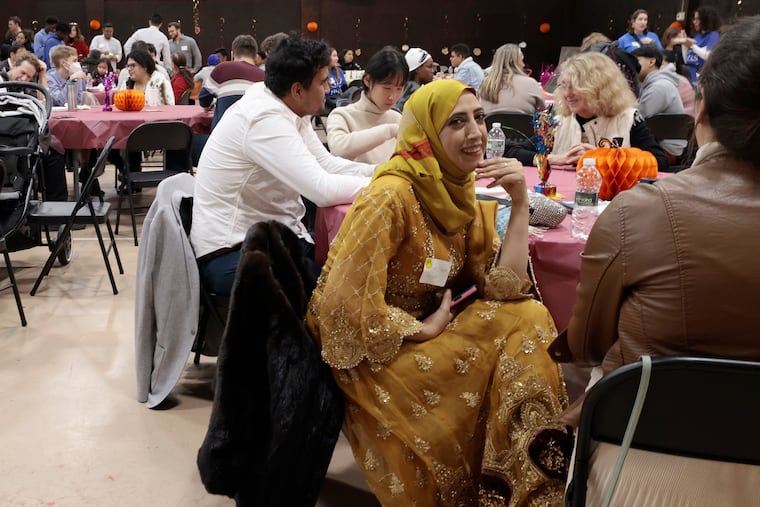Five ways the Parker administration can help immigrants in Philadelphia
Ensure that city services are accessible. Fund English language classes. Address housing needs. Create opportunities in civic leadership. Advocate for pro-immigrant policies.

Mayor-elect Cherelle Parker will face many questions when she takes office in January. One question is fundamental to our city’s economic future: Are we interested in growth, or simply managing Philadelphia’s economic decline?
If the choice is economic growth, Parker must build on Philadelphia’s recent designation as a “welcoming city,” and prioritize immigrant integration. Throughout its history, Philadelphia has embraced generations of immigrant-driven growth. Today, virtually every Philadelphian can trace their origin to a place outside of the United States.
Over the last decade, the city reversed more than 57 years of population decline thanks to an astounding 39% increase in new arrivals from across the world who made their home here, built businesses, invested in neighborhoods, and raised their families. And while the pandemic drove a net migration out of Philadelphia since 2020, our immigrant population increased by nearly 11%.
These facts demonstrate that immigrants continue to bet on our city. Here are five ways the Parker administration can help immigrants in Philadelphia from Day One of her administration:
Ensure language accessibility for city services
While we’ve made progress over the last decade, the city can do more by mandating that all departments create a clear path to integrate language access consistently and transparently. While Spanish remains the language of highest concern, Mandarin, Russian, Ukrainian, Dari, Pashto, Swahili, Congolese, and indigenous Guatemalan languages are all well-represented within the city.
For Philadelphia to be truly welcoming, we must have a language access plan that works for all languages, not simply the most popular. Not only is it federal law to accommodate these languages, it is also the right thing to do.
Provide funding for English language acquisition
There are multiple places across the city offering English language courses, including the Nationalities Service Center, HIAS Pennsylvania, Temple University’s Lenfest Center for Community Workforce Partnerships, and Community College of Philadelphia’s English as A Second Language Institute. Yet we must significantly expand this effort by funding weekend and evening programs, both virtually and in person. Additionally, the city should conduct outreach to those who may not be literate in their native language through public television, public radio, and on SEPTA buses and train lines.
Classes need to meet more often than once a week, and city government should work with large employers such as pharmaceutical companies, telecommunications companies, real estate management companies, and grocery store chains to make English language teaching part of an employee’s benefits program, and perhaps offered during the workday.
Address housing needs
The affordable housing crisis has reached acute levels in Philadelphia. Prior to the current inflation and the pandemic, our organizations were able to find affordable housing for our newly arrived refugee clients without resorting to using temporary housing. We were also able to use client stipends, provided by the federal government, and client earnings from their first jobs in the United States to pay for that housing.
The rise in prices has caused the search to take longer, triggering a need for temporary housing. Additionally, the federal stipend for clients has not been raised in more than a decade. The federal government has failed to adequately fund U.S. Citizenship and Immigration Services, meaning it is slower for immigrants to obtain work permits. Last year, this perfect storm meant that we used approximately 25% of our agency funds to ensure our clients were housed.
At a time when a worldwide migration crisis is only beginning, Philadelphia can become a world leader by devising housing solutions that not only ensure access to safe, affordable shelter for current residents but also provide temporary housing solutions for new arrivals.
Create opportunities in civic leadership
Philadelphia’s immigrant community constitutes nearly 16% of the city’s total population, and this number continues to grow. These voices should be heard throughout our civic infrastructure. While mayors typically have advisory boards of specific communities, this is not enough.
Immigrant voices should be recognized on economic development and social service boards and commissions and should be reflected in senior appointments within the administration. City government is supposed to serve the entire population, of which immigrants are a rapidly growing segment.
Advocate for pro-immigrant policies
Philadelphia needs to have a voice in the state and federal policymaking discussions on immigration, if only to balance the mean-spirited (and shortsighted) narrative that too often demonizes and scapegoats immigrants. The truth is that immigrants drive economic growth for all of us, and we need them to keep doing so. It is essential that immigrants have access to both driver’s licenses and work authorizations from the moment they arrive.
We appreciate and support Parker’s focus on reducing gun violence, improving public schools, expanding access to affordable housing, and supporting businesses to increase our tax base and combat the “America’s poorest city” moniker.
We ask only that the incoming mayor not ignore the fact that immigrants are critical to solving each challenge that confronts our city.
Cathryn Miller-Wilson is executive director of HIAS Pennsylvania. Margaret O’Sullivan is executive director of the Nationalities Service Center.